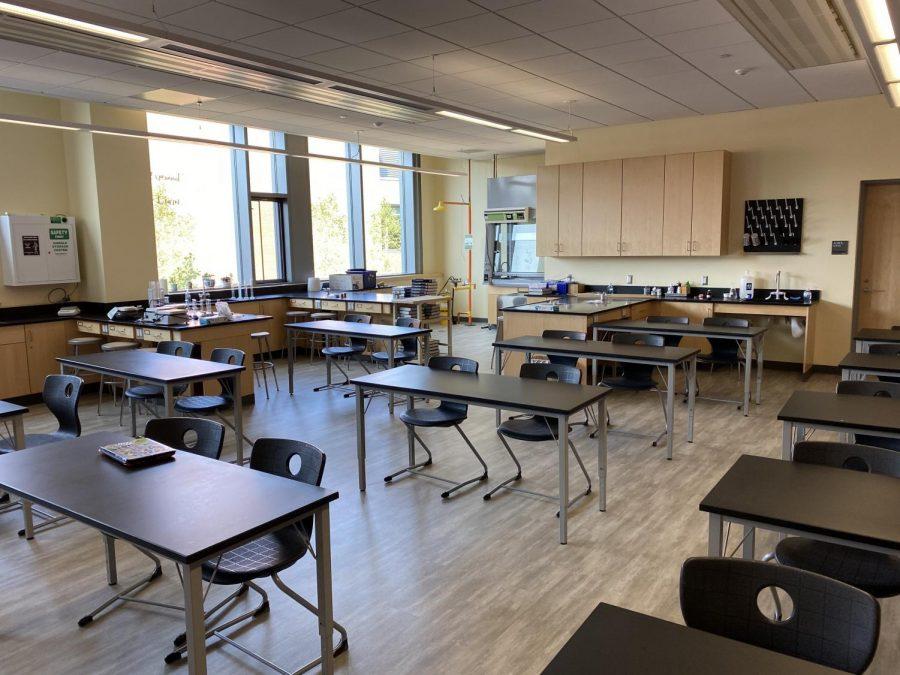Morgan Teachers Share Views on Teaching and Learning
Every Subject In School Is Useful Whether Students Realize It Or Not
Students these days struggle to understand why they need to learn certain subjects. They get frustrated because they do not know why they are learning English, geometry, his
tory, or science. A common argument students make is that they don’t want to be in certain classes because they’ll never come across the subject again. Oftentimes, as students become adults, they don’t come across weirdly specific questions like “George has 500 watermelons but eats 326, how many more does he have to eat to finish them all?” In this article, teachers share why the skills they teach in their subjects are useful.
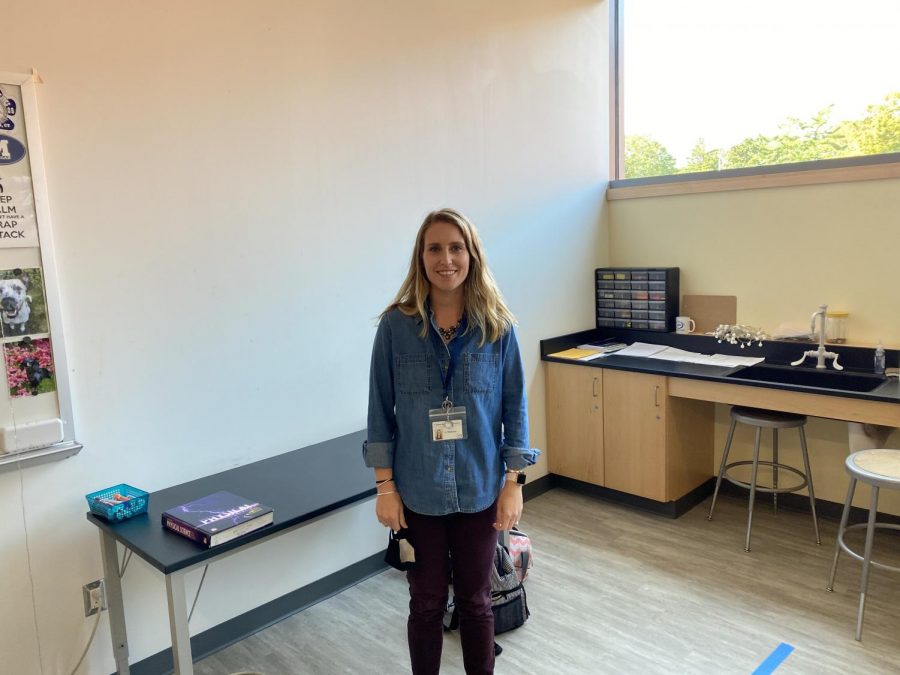
If science teacher Alexandra Patterson wasn’t a science teacher, she would have probably been a counselor. Mrs. Patterson believes that learning is being open to making mistakes and varying perspectives. She said the subject she teaches is useful because chemistry is the study of matter, as chemistry can pretty much explain almost anything. More so, the skills, such as communication and collaboration, that students gain through lab work prove to be useful throughout life. Chemistry can improve students’ critical thinking skills when it comes to problem-solving. Ms. Patterson hopes that all the “big ideas” and skills the students learn will be the information they retain throughout their lives, rather than the actual material. Ms. Patterson likes to teach her subject through hands-on experience. Mrs. Patterson prefers to teach chemistry because it requires a more analytical approach that’s based on evidence and data. Mrs. Patterson believes that teaching is all about personal connections with her students and empathy. She states that the only way to get students interested in the subject is by building a strong relationship with students so that they’re more willing to take risks and make mistakes and finally grow more as a student.
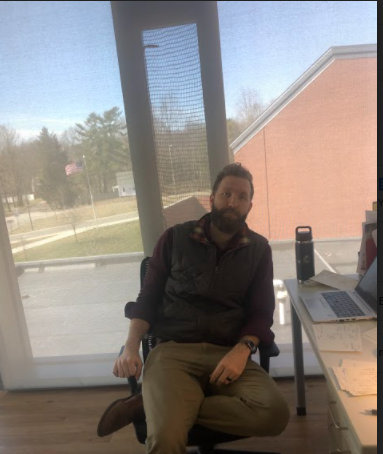
English teacher Eric Carroll believes that learning starts with a question that gradually blooms into an experience. He believes that English is useful because it helps students learn the grayer areas of life. Science and mathematics require more concrete answers and clarity, while English class serves the purpose of being the answer to the in-between outside of any objective clarity. Mr. Carroll believes that English offers the closest connection to daily life. He doesn’t see English as a course that contains content that students would have to memorize or learn. He perceives teaching English as a skill set that students can always use to help navigate their life, such as understanding different ways of seeing the world and helping with relationships. If Mr. Carroll were to teach another subject, he would be a math teacher. He likes to have answers in life, so when it comes to the grayer aspects of school or life, math offers more certainty. He believes a teacher is someone who helps a student gain more skill in approaching new problems. He wants to give his students the ability to figure out their issues themselves and have the necessary skills to solve conflicts independently.
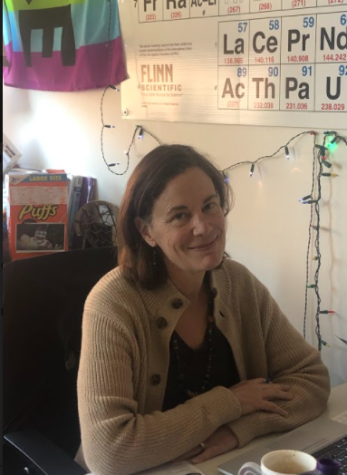
To forensics teacher Karen Kaestle learning is not just about acquiring new information. Ms. Kaestle believes that having an understanding of basic science can help students understand the major aspects of life. Science offers an opportunity for students to gain a background that they can access throughout their life. Ms. Kaestle started as a chemist and loved teaching as a graduate student. She teaches her students through hands-on methods. She thinks one of the great things about chemistry is that it’s an applied science, especially forensics, be it crime scenes, fingerprint analysis, or arson investigation. She thinks most students retain most of the factual data. She hopes that information can become more familiar over time. She does not expect her students to remember all the information they learn in her class. If Mrs. Kaestle wasn’t a science teacher, she would be an anthropology, art, and history teacher. Ms. Kaestle is a learner first, then a teacher second. She believes being a teacher is trying to figure out how best to help students master a skill, or how to teach a student to be excited about the subject and build up their own interests.
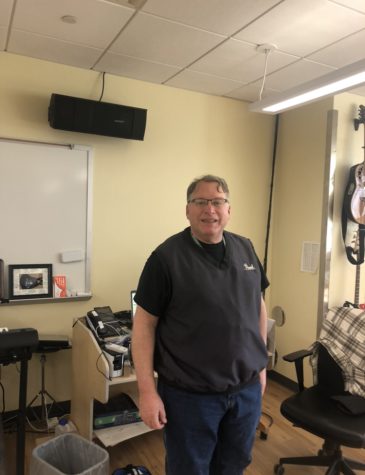
Band teacher Mr. Smith believes that to learn is to live, as we are constantly learning throughout our lives. We learn how to survive, live, and love. We learn how to experience life and to be human. He thinks teaching music is important, as music would seem much thinner without it. It would be lacking in depth. As an analogy, imagine a world without art. Imagine a world without creative design or a picture on the wall. Life would be extremely bland without music or just art overall. Mr. Smith teaches a variety of music courses. Every student has different interests, and each course shows a different aspect of music. He believes in the heart of all those differences. He hopes to teach students love and appreciation of music. He wants to empower his students to experience music, and experience connection in our lives. The Chief would hope that the subject he teaches will resonate with students later on. He has former students that have children who passed what they learned in Morgan’s music classes to their children. Mr. Smith would teach math as another subject if he wasn’t a band teacher. He even likes to learn math as a student. The rhyming patterns from math are similar to music. According to Mr. Smith, being a teacher is loving what you do, especially if you don’t get paid much for it. Most teachers are just drawn to the act of teaching. His wife would say that he cannot stop himself from teaching. Essentially, the subject doesn’t matter to Mr. Smith. Rather, he’s drawn to the actual idea of teaching rather than the topic he teaches. Sometimes his wife would have difficulty navigating through the remote, so he would turn the predicament into an entire lesson, teaching his wife what each button represents, what each switch would result in. Sometimes she would feel patronized, but nonetheless, he can’t help it.
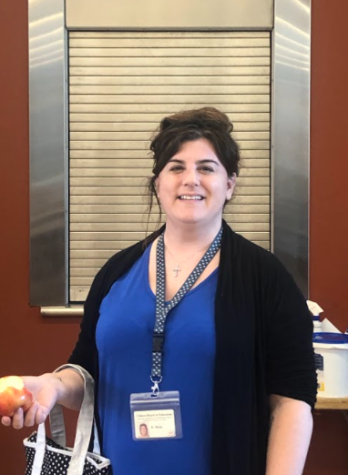
Social studies teacher Diana Rizzo thinks the best type of learning is when the student takes the work upon themselves and participates in class. She believes a degree of independence would prove to be the best learning experience for a student. She believes in work ethic, resourcefulness, and taking the initiative by being proactive. Ms. Rizzo said that history often repeats itself. She believes history will help a leader avoid repeating the same mistakes. She wants to make sure students learn from the good and bad.
Ms. Rizzo chose to teach history because her mother inspired her to teach history. Her mother would frequently take her to the museum growing up and numerous other places full of historical information. Ms. Rizzo likes to keep her students interested through a variety of activities such as watching documentary videos, participating in debates and discussions, and analyzing primary and secondary source readings. They play historical games that match their subject, such as “Roman Bingo.” She likes to maintain variety in her classroom to ensure the topic remains fresh. She believes that if learning is done by cramming information, students are less likely to remember the information as fluently. She doesn’t expect her students to remember every single detail that she taught. For Ms. Rizzo, teaching history isn’t about teaching the information itself. Instead, it is teaching students kindness and maintaining connections with the students. She believes these connections are what they retain the longest after school.
If Ms. Rizzo were to teach another subject, she would teach health. She’s very much into mental health and would like to teach strategies to students that will help them cope with stress, especially since stress is never going to leave a student’s life. She would also like to help remove stigmas of mental health issues. People often judge people who have anxiety or depression. She would want to teach people what these medical issues are all about so that they can end up having more compassion. She believes what it means to be a teacher is sacrifice. You have to put the students first and often have to sacrifice your own free time during the weekends. Overall, Ms. Rizzo believes sacrifice, leadership, and experience are skills that every student should have.
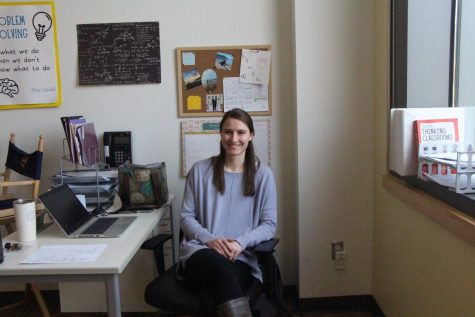
Math teacher Jessica Lynch believes learning is the process to acquire new skills and mindsets. She states that as math is everywhere, people can’t really do anything without numbers. Ms. Lynch states that math is important because it teaches you problem-solving skills. Problems are things you encounter through your entire life, so you need the necessary skills and resources to solve those problems. Ms. Lynch chooses to teach her subject because students typically don’t like math, so she teaches the importance of the topic. Ms. Lynch wants to build up her students’ confidence in something they haven’t had much success in before. Ms. Lynch likes to do a lot of collaborative activities and enjoys it when students can discover their learning on their own rather than being told what to do. Ms. Lynch hopes that her students retain their information for a long time, but understands that it’s not possible to retain a lot of it. She hopes that students can carry the information they learn into other classes and build their knowledge and skills. If Ms. Lynch were to teach another subject, it would be P.E. Ms. Lynch would like to teach this subject because she likes sports and believes physical activity is very important in kids, especially since kids are a lot more dependent on technology now. She believes being a teacher means you are there for your students no matter what they need. Overall, she thinks teachers should build relationships with students and help them realize their potential.


